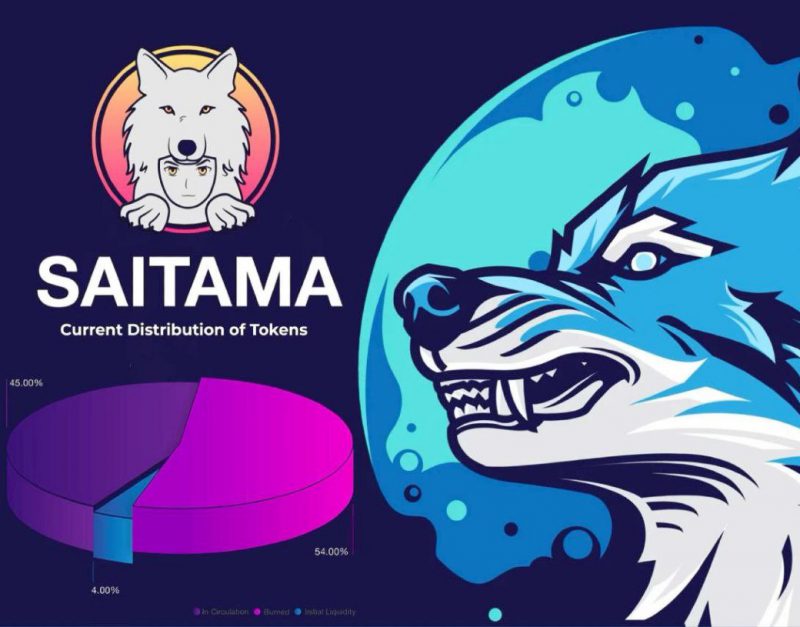There is a large variety of memecoins currently available on the market. As a result, constant concerns of project legitimacy occur.
On November 18th, 2021 CoinMarketCap displayed a warning message on the Saitama review page. The message discussed a wire fraud scam. This was quickly taken to Twitter and discussed throughout the community.
Is this something that investors need to be concerned about? Or is this just another piece of irrelevant news?
What is Saitama?
Saitama is a community-driven token that aims to educate investors. According to its whitepaper, they focus on educating Gen Z traders. In addition, they aim to provide content that teaches people how to invest.
Saitama is currently in stage 3 of 5 of its road map. They plan to launch a marketing campaign on TikTok and Twitter. As well as donating to student bodies and educational charities.
Like many memecoins, the founders of the project are anonymous. According to the whitepaper, the deployer renounced ownership after launch.
Future projects include a Saitama wallet. As well as a Saitama marketplace for NFTs. Saitamaker will be an NFT-based launchpad, allowing people to create NFTs.
The CoinMarketCap Aletercation
As previously stated, on November 18th, 2021 CoinMarketCap displayed a warning message on the Saitama review page. The message discussed a wire fraud scam. However, the message appeared only for a few hours then was taken down.


Here CoinMarketCap is implying that a partner of the Saitama project was sentenced to wire fraud. Here is the official FBI press release.
The FBI report states that William James Dennis was sentenced to prision on wire fraud charges stemming from the sales of Apple Iphones. This is not necessarily relevant to the project itself.
The altercation also took place over a decade ago in 2010. So why would CoinMarketCap choose now to address it.
This led to discourse within the Saitama community. As a result, many members flocked to Twitter to express their concerns. Community members were outraged, believing this was a plan to sabotage the project.
Saitama Response
Saitama responded to the altercation with a tweet. They stated that the article was from 12 years ago (2010) and didn’t involve a developer.
An article from 12 years ago (2010) and not even from our developers that cause some of our members panic a bit! Be calm WolfPack. Remember that the important of the project is our community and our devs team is working hard to provide our community best interest #SaitamaWolfPack
— Saitama Official (@InuSaitama) November 18, 2021
Saitama handled the situation well. Firstly, they came out and informed the community that this was true but out of context. Secondly, they reassured the community that they are working hard on the project.
Some community members still believe this was a plan to sabotage the project. Others have come to realize it could have been for liability purposes.
It is unclear the nature of this warning message on CoinMarketCap. In the most likely scenario, the company wanted to inform investors before purchasing a project.





